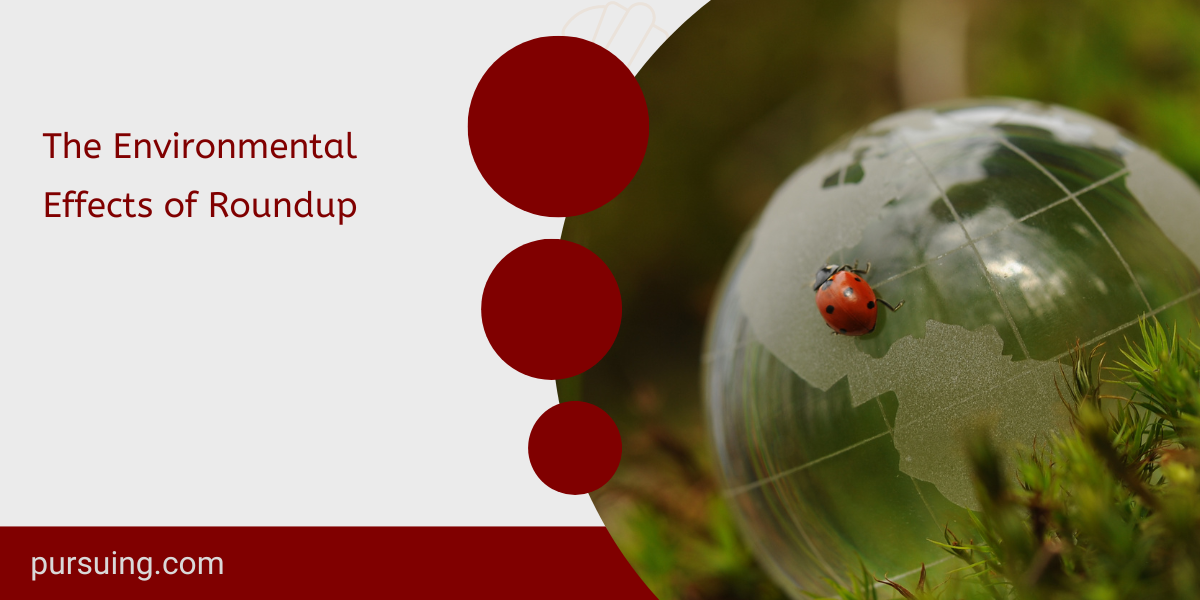The Environmental Effects of Roundup

Roundup is a popular herbicide that was first introduced by Monsanto in 1974.
Its active ingredient is glyphosate, which targets and kills unwanted plants. Since then, it has become one of the
most widely used herbicides in the world. However, the use of Roundup has been controversial due to its potential environmental effects.
One of the most significant environmental effects of Roundup is the impact on soil health. Glyphosate has been shown to negatively affect soil microorganisms, including beneficial bacteria and fungi. This can disrupt soil ecosystems and reduce the fertility of the soil. In addition, glyphosate can bind to soil particles and persist in the environment for months or even years, which can lead to long-term soil degradation.
Another major concern is the impact on non-target organisms, such as insects, birds, and aquatic life. Glyphosate has been shown to be toxic to bees and other pollinators, which can have serious implications for agriculture and ecosystem health. In addition, it can contaminate water sources and harm aquatic life, such as fish and amphibians.
There is also evidence to suggest that glyphosate may have negative effects on human health. Studies have linked exposure to glyphosate to an increased risk of cancer, particularly non-Hodgkin's lymphoma. It has also been associated with other health issues, including reproductive problems and developmental disorders.
The use of Roundup has also contributed to the development of glyphosate-resistant weeds, which can lead to increased herbicide use and environmental damage. Farmers may use more herbicides to combat these resistant weeds, leading to increased environmental pollution and further disruption of ecosystems.
In response to these concerns, some countries have restricted or banned the use of Roundup and other glyphosate-based herbicides. For example, the European Union banned the use of glyphosate in 2022, citing concerns about its impact on human health and the environment.
In conclusion, the use of Roundup and other glyphosate-based herbicides can have significant environmental effects. It can lead to soil degradation, harm non-target organisms, contribute to the development of herbicide-resistant weeds, and potentially harm human health. While the use of herbicides can be an important tool for agriculture and land management, it is essential to consider the potential environmental impacts and use them responsibly.





